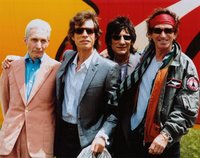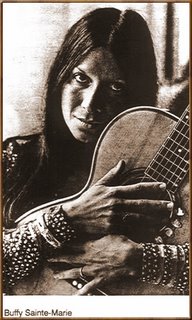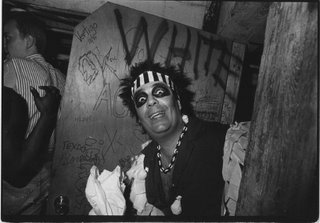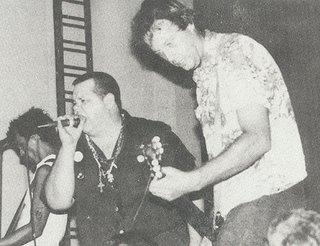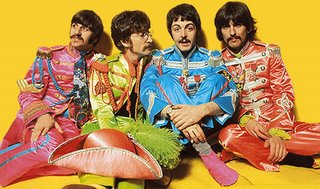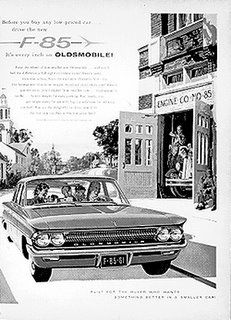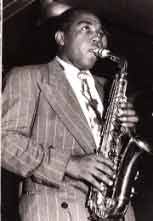
Cleaining out the e-mail box, I found this, which is just a little dated, but still useful. The original, from IslamOnLine, is no longer up, so I post it in full.
French Muslim Band Speaks Against Racism, Terror
The band’s albums have sold a record number in France.
By Hadi Yahmid, IOL Paris Correspondent
PARIS, March 26 (IslamOnline.net) – In France, rap music no longer conjures up images of hip-hopping boys and girls or doped teenagers after a Muslim band has given it a new look.
Singing primarily against terrorism and racism, Din Records seven members are priding themselves on being Muslims moved by the sufferings of their fellow Muslims from Palestine to Chechnya.
“Other rap bands are united by drugs, but we are united by prayers,” the band’s vocal Medine said on the band’s Web site.
Established in 2002, the band denounces the injustice done to Muslims in the occupied Palestinians territories, Iraq, Afghanistan and Chechnya.
It also condemns terrorism and expresses heartfelt sympathy with the oppressed worldwide.
Din Records songs, which topped France’s music charts and sold briskly, include “Jihad” “9/11,” “Guantanamo” and “The School of Life.”
“We want to give voice to the sufferings endured by Muslims throughout the past three years in the aftermath of the attacks,” Medine says.
“9/11”
The 9/11 ditty, which has been banned by the French TV, shows a mixture of the havoc caused by 9/11 attacks in New York and Washington and the destruction caused by the US troops in Afghanistan and Iraq.
It also features the deplorable conditions of the Palestinians and the wide-scale destruction of their lands and homes by the Israeli occupation army.
“I keep looking for the root of the world’s disasters/Only to find out that the storm is blowing everywhere,” read the song’s lyrics.
“But the eyes are fixed on the twin tower/You don’t understand anything neither do I/But listen to the story from the very beginning…From September to September…From Ramallah to Manhattan…From Kabul to Baghdad,” they say.
The song says that the 9/11 attacks have had their domino effects on Muslims in France with the secularism drive picking up steam.
“In the country of the three-color flag, you have to be secular and enlightened/You must respect the values of the republic/Muslims are not allowed to wear beards or take on the hijab in schools.”
And it hits out at the media blitz against Muslims.
“In the newspapers, they accuse us of inciting violence, war crimes/They accuse us of being against the Americans though the Americans are rallying behind Michael Moore,” the US filmmaker who directed the anti-Bush “Fahrenheit 9/11.”
The song also touches on the torture and sexual abuse of Iraqi prisoners by US soldiers.
“Two or three million dollars and we will forget about Abu Gharib,” the scene of the pornographic and shocking practices meted out to Iraqi prisoners by US soldiers.
Guantanamo
The songs “Guantanamo” and “The School of Life” have to do with the humiliation of Muslims in the West.
“The storm is blowing down Islam and the residents of the suburbs, who are marginalized in transports because of their hijabs/And those young people with beards, who are banned in airports/It is a plausible reason for Islamophobia,” read the lyrics of “Guantanamo”.
“The School of Life” adds: “They tell me that I belong in the third generation of immigrants/Though I have been born here and lead a simple life/Indeed, [the Hijri year] 1425 is a minaret for our fathers, mothers and brothers.”
The International Helsinki Federation for Human Rights (IHF) said in a recent report that Muslim minorities across Europe have been experiencing growing distrust, hostility and discrimination since 9/11.
“Pre-existing patterns of prejudice and discrimination have been reinforced and Muslims have increasingly felt that they are stigmatized because of their beliefs,” said the report.
Click for
“9/11” video clip Click for
Din Records Website
